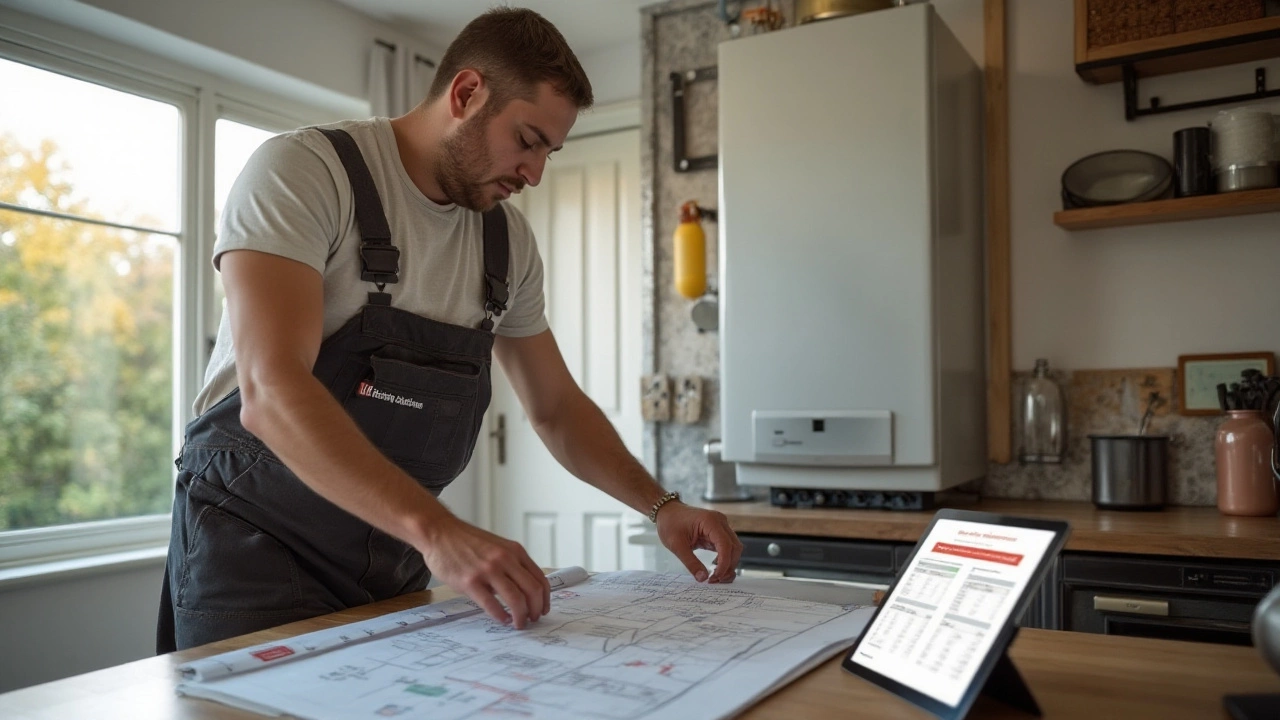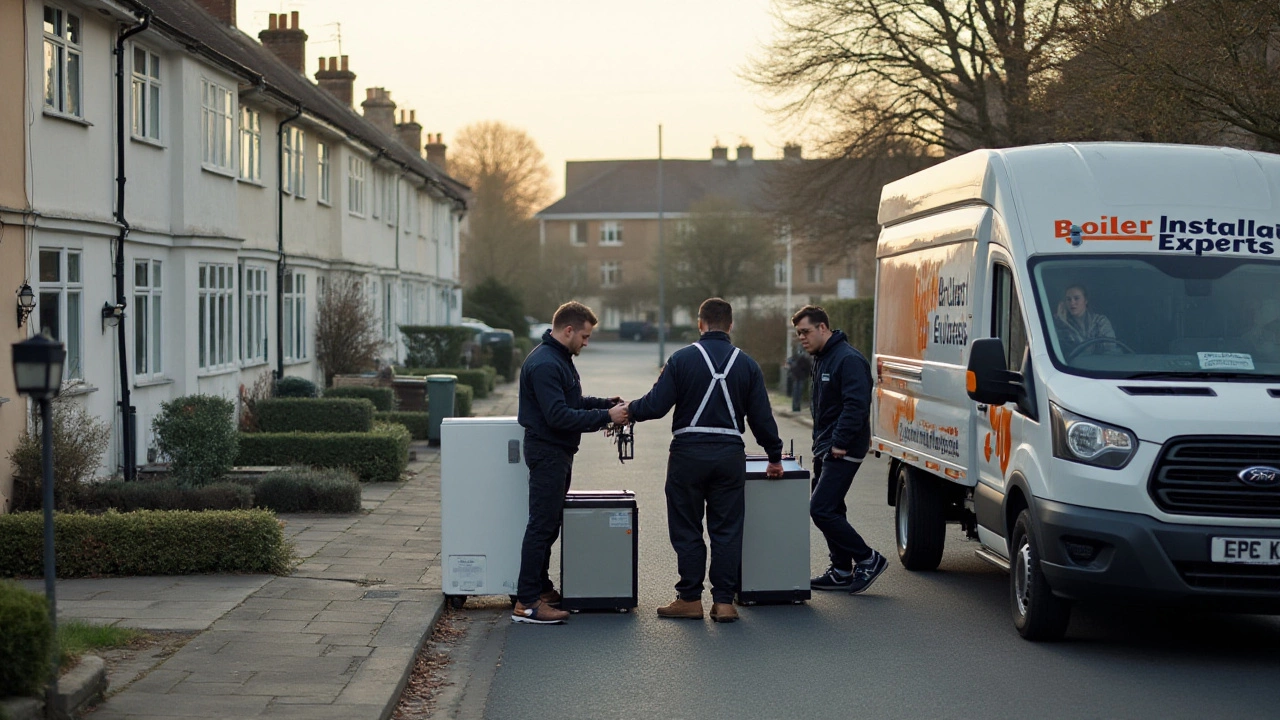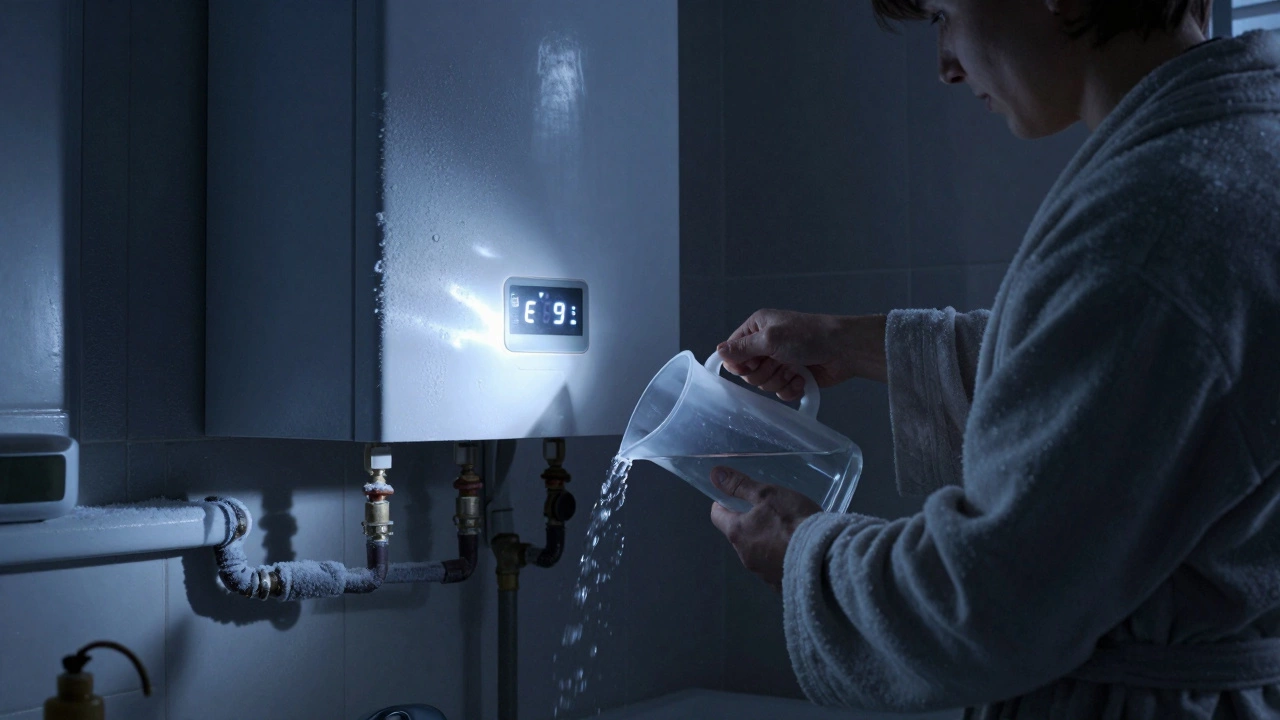
- 25 Dec 2024
- Gideon Thornton
- 0
Replacing a boiler is often a dreaded task for homeowners, not least because of the financial burden it seems to impose. However, understanding the factors driving these costs can transform your approach. How much you pay is influenced by a wide array of elements – from the specifics of the installation process to the type of boiler you select.
Each component involved in bringing a new boiler up and running adds to its hefty price tag. The labor required, the intricacy of the setup, and compliance with regulations are just the tip of the proverbial iceberg. And while cost might feel prohibitive, having clarity on where your money is going can make the decision less daunting.
- Understanding the Components of Boiler Costs
- The Role of Labor and Installation Expertise
- Choosing the Right Type of Boiler
- Cost-Saving Tips for Replacing Your Boiler
Understanding the Components of Boiler Costs
When it comes to replacing a boiler, many people are surprised by the numerous factors that go into determining the final cost. In order to grasp these complexities, it's crucial to break down each component involved in the process. First, you have the boiler unit itself. Depending on the type of boiler you choose, such as a conventional, system, or combi boiler, the initial price can vary significantly. For instance, a high-efficiency combi boiler might run higher due to its dual heating capabilities. These types not only heat water on demand but also space, providing a more compact solution for smaller homes. The demand for energy-efficient solutions has driven up manufacturing costs, but this often results in long-term savings on energy bills.
Labor costs form another critical part of the expense. Boiler installation isn't a simple plug-and-play task. It involves a skilled technician who understands your home's unique plumbing and heating configuration. According to a report by the Energy Savings Trust, labor can account for upwards of 40% of the total replacement cost. This is because technicians need to ensure that your new system integrates seamlessly with existing pipes and components, requiring expertise and sometimes even tinkering with older home setups.
Materials and additional components also contribute significantly to costs. Beyond the boiler unit, parts like flues, filters, and controls need to be purchased and installed. Each home has unique requirements based on its size and design, and sometimes older homes require more parts for compatibility with contemporary systems. An often overlooked component in this equation is the need for any necessary upgrades to electrical or venting systems to accommodate the new furnace. Many homes, especially those with outdated infrastructure, see unexpected costs arise from necessary compliance with modern standards and regulations.
Let’s not forget the role of geographical location, which can affect availability of both parts and skilled labor. Urban centers might provide quicker service and more competition, potentially lowering costs, while rural areas can suffer from scarcity of qualified professionals. An insightful perspective comes from industry expert John Carmichael, who notes, "Pricing can often be unpredictable and is very much dependent on local factors as well as the Type and age of system being replaced."
"To ensure safety and efficiency, every boiler installation must adhere to stringent guidelines, and that level of compliance can sometimes add to a surprisingly steep bill," says environmental engineer, Dr. Elizabeth Hawkins.
People often wonder why so many cost factors exist, and there’s no denying that it can feel overwhelming. However, knowing exactly why you're paying what you are can make the expense a little easier to accept. It's a grand investment in long-term home comfort and energy efficiency, ensuring your house remains warm during the harshest winter months. For those on a budget, options do exist to spread these costs over time, such as financing plans provided by some service providers. Remember to request detailed quotes that include all components of the replacement process, and don't be shy to ask about any possible hidden expenses.

The Role of Labor and Installation Expertise
When it comes to replacing a boiler, the significant chunk of the final bill often stems from labor costs and installation expertise. This isn't just about someone's time; it involves a great deal of specialized skill, careful planning, and meticulous execution. Engineers working on boiler installations must possess extensive knowledge of the home's heating system, local regulations, and safety standards to ensure everything works seamlessly. A seemingly straightforward installation can quickly become complex if you consider factors like existing piping, electrical components, and space limitations in the home.
Labor costs are particularly high because boiler installation is not just about plugging in and walking away. There's a need for precision and accuracy in connecting components, calibrating the system, and ensuring optimal performance. Often, this involves upgrading parts of the existing system to meet modern efficiency standards. According to figures by the U.S. Bureau of Labor Statistics, HVAC technicians, who frequently handle boiler installations, earn an average of over $24 per hour, reflecting the technical expertise involved. This rate can vary based on experience, certification levels, and geographical location.
"Precision in installation not only guarantees system efficiency but also extends the lifespan of your boiler," notes an expert from Energy Star. "Incorrect setups can lead to higher energy bills and increased maintenance costs in the long run."
It's crucial to hire experienced professionals to handle boiler installations. While it may be tempting to cut corners by choosing the lowest bid for installation, this could result in significant expenses down the line, not to mention safety risks. Expertise doesn't just ensure the boiler is working when it's first installed—it means fewer problems, repairs, and expenses over time. Proper installation is key to prevent potential hazards like gas leaks or carbon monoxide exposure, which can have dire consequences for health and safety.
Moreover, expertise is essential in selecting the right type of boiler. Professional installers can assess the specific needs of a house and recommend the most efficient unit compatible with the existing heating system. Different homes have different needs: some might be better suited to a combi boiler, while others require a conventional or system boiler. This tailored advice helps maximize the lifespan and performance of your heating system, aligning closely with considerations such as space, energy consumption, and budgetary constraints.
Finally, engagement with a professional ensures compliance with all necessary regulations. This includes obtaining any necessary permits or certifications that your area might require for new installations. Failing to meet these requirements can lead to fines or, in the worst-case scenario, a forced removal and reinstallation. Professionals are well-versed in navigating these legal landscapes, ensuring your peace of mind when it comes to both safety and legality.

Choosing the Right Type of Boiler
Making the decision to replace a boiler often means choosing a new type that fits your home and your budget. Understanding the differences and similarities among the various types is essential not only for ensuring you have the most efficient system but also for managing costs effectively. A common option many homeowners consider is the **combi boiler**, short for combination boiler, which provides both heating and hot water directly from the unit. This can save space because it doesn’t require a separate hot water cylinder or a cold water storage tank.
Another type, quite popular in larger homes, is the **system boiler**. It differs because it does use a hot water cylinder, which allows for a rapid supply of hot water to multiple outlets at the same time. This can be ideal for a home where many households share bathrooms, particularly during busy morning routines. System boilers are known for their efficiency, as they're manufactured to maintain a consistent supply of temperature and pressure, reducing energy waste.
Interestingly, the **regular or conventional boiler** type, which comes with its own hot water tank, is often found in older houses with traditional heating systems. These boilers are reliable and perfect for homes where existing radiator systems can support them. They’re excellent for keeping water hot for extended periods, which often benefits households during extensive usage periods.
"Selecting the right boiler not only ensures comfort but can positively impact future household expenses," says Alan Connors, a reputable HVAC specialist, "Skip the one-size-fits-all approach and focus on what truly works for the square footage of your space and its specific heating demands."
Another aspect to consider is fuel type. Most homeowners use **natural gas** boilers, given their efficiency and widespread availability. However, for homes not connected to the gas grid, alternatives such as **oil boilers** or **LPG boilers** serve as viable options, although they often come with higher operating costs.
Efficiency ratings should be a crucial factor in decision-making. Modern A-rated boilers typically offer over 90% efficiency, meaning you could potentially save a substantial amount on energy bills relative to older models. Pay attention to the energy performance label attached to the boiler – it can make a world of difference in ensuring your home's environmental footprint is as light as possible.
Not surprisingly, most contemporary boilers are designed to accommodate smart technology, allowing homeowners to control settings, monitor energy use, and potentially troubleshoot via apps. This not only enhances convenience but also empowers you to take better control of your home's energy consumption.
To streamline the choosing process, here's a handy checklist you can take into consideration:
- Assess the size of your property and its hot water demands.
- Determine if your home’s existing radiators and plumbing can support different boiler types.
- Learn about the efficiency ratings and the impact they could have on future savings.
- Consider fuel availability and costs for natural gas, oil, or LPG boilers.
- Explore compatible smart technology for ease and efficiency in home energy management.
Choosing the right type of boiler is a crucial step for enhancing your home comfort efficiently. Equipped with good knowledge, you can facilitate a seamless transition while uncovering an option that aligns perfectly with your household's unique heating needs.

Cost-Saving Tips for Replacing Your Boiler
When it comes to replacing your boiler, finding ways to cut costs without sacrificing quality can feel like an art form. With the right approach, however, significant savings are well within reach. First, it’s crucial to consider the timing of your boiler replacement. Boilers often tend to fail at the worst possible times, but planning your replacement during the off-peak months could potentially save a chunk of cash. Waiting for a seasonal sale or discount offer when demand dips can also ease the financial burden.
Another tip involves the procurement of the boiler unit itself. Instead of purchasing directly through your installer, consider sourcing it yourself. This can sometimes be cheaper, especially if you shop around for deals. However, ensure you consult with a professional before making a purchase to confirm compatibility with your home's heating system. Additionally, comparing and negotiating quotes from various contractors can prevent unnecessary expenditure. Remember, it's not just about the price but the quality and reputation of the service provider, which in turn can impact what you pay down the line.
Investing in energy-efficient models can also yield long-term savings. While the initial costs might be higher, these boilers reduce energy consumption, slashing utility bills over time. The UK government offers boiler grants and schemes to encourage the purchase of energy-efficient systems. Averages show household energy bills can decrease by up to 25% annually, thanks to these greener choices. Moreover, consider checking with your local government for any available rebates for new boiler installations.
If possible, minimize structural alterations. Boiler replacements sometimes come with an extra price tag due to the need to install new piping or make other adjustments. By opting for a boiler that fits within your existing setup, you can save money on these additional works. Don't forget regular maintenance both prior to and after replacing your boiler. Routine check-ups enhance efficiency, extending the lifespan of your system. As one industry expert once noted:
"A consistent maintenance schedule can delay the need for replacement by years, much like regular oil changes extend the life of your car’s engine."
Lastly, a budget-friendly strategy encompasses upgrading your radiator controls or investing in a smart thermostat. These small improvements enhance the overall performance of your heating system. Installing thermostatic radiator valves allows you to control each room's temperature individually, aiding in energy management and preventing wastage. Adopting these innovative tech solutions can bridge the gap between low initial investment and high long-term returns. Such devices prove to be not only money savers but also add layers of convenience, offering control at the touch of a button via smartphone apps.



